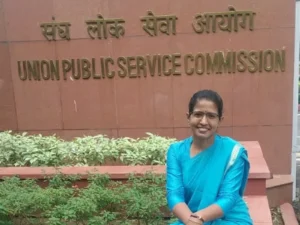The Essay Paper in the Civil Services Exam conducted by UPSC is usually not focused upon by the IAS aspirants in the manner as it ought to have been. The point to be noted is that if you are a good essayist and understand with a smart and keen insight into what UPSC looks for in a potential administrator, you can definitely give a good push to your rank by scoring well in the Essay Paper.
The Essay Paper in the CSE Mains consists of 2 Sections. Each section comprises 4 topics. You have to opt for one. Each of the topics carries 125 marks. Thus, the Essay Paper provides you with an opportunity to employ your essay writing skills and score the maximum that you can out of a total of 250 marks.
What does UPSC look for while evaluating the Essay Paper?
First of all, it would be a fairly logical idea to understand why should the Essay Paper form a part of the Examination scheme in the most competitive of the Exams called CSE? Here’s what UPSC notifies, “…candidates may be required to write essays on multiple topics. They will be expected to keep closely to the subject of the essay, to arrange their ideas in an orderly fashion, and to write concisely. Credit will be given for effective and exact expression.”
Thus it clearly explains that UPSC looks for the following attributes about the thought process of the IAS aspirant while evaluating the Essay:
- viewpoints on critical matters,
- clarity in thinking,
- ability to explain his view point concisely and effectively,
- ability of coherence
- putting his ideas in an orderly fashion, language. In a nutshell, it acts as a mean to bring out the traits of a potential civil servant and to evaluate if he is fit to be one.
The Essay Paper: Myths & Truths
Myth 1: No preparation is required for the Essay Paper
Truth: The truth is that you have to prepare harder for the Essay Paper. For various other Papers, say GS, you may score on grounds of content. But, when it comes to the Essay Paper, UPSC would scrutinize your entire thought process (as per the topics of the Essay) as has already been clarified above.
Myth 2: The Essayist would do well to use a bit of jargon
Truth: UPSC is not looking for any kind of jargon or the sophisticated use of vocabulary at all. The truth is that it is your thought process that is under scrutiny. So, use a language that is clear, simple and lucid to convey your ideas with crystal clarity.
Myth 3: There’s hardly any difference in between a usual Essay and the one that you pen down in the Mains Exam
Truth: Nothing can be more misconceived than the idea presented in the myth above. It has already been said clearly that UPSC is assessing your thought process. Thus, the Essay you are going to write in Mains is widely different from the one you usually read in a school or college Essay book.
Where to seek the help from while preparing for the Essay Paper?
- Reading non-fiction: will help to develop thinking process.
- GS and optional preparation will give content.
- The magazines: Kurukshetra, Yojana, EPW, Economic Survey, Down to Earth.
- Anecdotes, stories, quotes, facts and figures: A separate notebook should be kept for the same.
- Essay transcripts of previous year toppers.
- Newspaper editorials, relevant lines said by minent/constitutional posts like President, PM etc.
Strategies to prepare for the Essay Paper?
- Study the transcripts of the toppers to get an idea how to write an Essay in the Mains.
- Take down notes while reading the relevant information that can be useful for the Essay Paper in a different Notebook.
- Prepare content on all the topics that have included in the Mains Essay paper for Essay writing. Also include facts/ figures, quotations, anecdotes, case studies, sayings, government schemes etc.
- Try to think of the topic from all the feasible perspectives at various platforms including Political, Social, Cultural, Economic, International and Humanistic Legal etc. to cover maximum of the dimensions.
- And now is the time to write the Essay.
How to write the Essay in the Mains?
- Think of how much of the time you would employ to opt for the topic?
- How long will you take to assess what does the topic actually aim at?
- How long will you take to chart out what all and in what sequence is to be included in the Essay?
- How long will you take to write the essay?
- How long would to take to re-read the Essay you have written?
- It’s wiser to keep some time, say 8-10 minutes for any exigency.
A Word of Caution
- Never opt for a single sided argument
- Never go against the spirit of the Constitution of India
- Do not try to make a display of your knowledge. Be precise and write what is actually required by the topic.
- Do not harp on one tune, favoring a specific ideology, thus giving a prejudiced treatment to the topic of the Essay.
Finally, it should always be taken into account that the Essay you write in the Mains should reflect the thought process of a potential administrator. Thus, you are not going to write an Essay that summarizes all the relevant facts, but the one that represents a highly analytical and unprejudiced mind. Though the knowledge simply can’t be ignored, it’s the way you present your thoughts that scores an edge over the facts and the information that your Essay presents. However, that of course does not imply by any means that you are not required to study and gain the knowledge. But present the entire facts in a manner that your thought process comes out as the one belonging to an administrator and not a casual Essayist.





